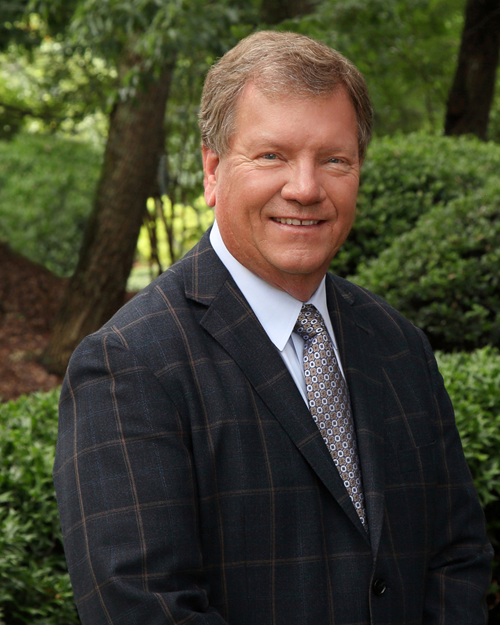Musings From the CEO – The Estate Planning Profession

By Mike Hoffman, Esq., CPA
Over the last several decades large law firms have been traditionally places of opportunity and training for estate planning attorneys. Large law firms had burgeoning estate planning and probate departments. However, these traditional sections of large firms have been marginalized or jettisoned in favor of more profitable areas of litigation and corporate law.
As a result, the number of adequately trained associates gets smaller, which puts greater pressure on the small boutique practices to find qualified professionals. At the same time, the technical areas requiring mastery continue to expand at an exponential pace. For instance, it is no longer satisfactory to copy a Will out of a big bank’s forms book, even if that Will creates trusts and covers many of the complexities of having a corporate fiduciary. We now have trusts that will be created for an unbelievable number of generations, and the need to build in flexibility has never been greater. The rate of change in our tax laws, trust codes, and drafting techniques has changed at a fast and consistent pace. While the talent pool is draining, the environment becomes more complicated, with more uncertainty.
When doing Core planning for our estate planning clients, one Will is not the same as another. Modern families are more complicated. Client fact patterns lend themselves to a large variety of testamentary trusts, from QTIP maritals and credit shelters, to lifetime descendants trusts with dynasty provisions, and all the different ways they can be funded. With a liberal sprinkling of limited and general powers of appointment, we assure flexibility. The use of Trust Protectors; knowing when to introduce the concepts of a revocable trust; advising on fiduciary selections and distribution rules; and dealing with many other complexities, such as planning for unused exemption amounts and generation skipping transfer tax, all require ever increasing competency.
Legacy planning involves taking a deeper dive on what makes up a client’s estate. Closely-held businesses and family farms present interesting challenges regarding succession planning and liquidity issues. The extensive understanding and experience in dealing with various forms of business, business plans, exit strategies and the myriad of purposes for life insurance present unique challenges to the planner. Dealing with the complexities of many types of retirement plans and the myriad of choices for beneficiary designation is often critical for such a significant asset. Of course, all the wealth of information and experience is not worth a dime if the lawyer has not established the necessary relationship with the client which allows for open thought and frankness. And the planner must be sophisticated enough to keep any plan as flexible as possible, since circumstances change and clients planning and thought processes must be allowed to evolve.
Stewardship planning is where we roll up our sleeves and dig into asset protection, tax savings and philanthropy. Client values are the driving force. Under Georgia law we can now create structure that will protect assets and save taxes for over 360 years. Think about that, clients have the opportunity to create a plan/structure that will benefit their family for more than ten generations. The alphabet soup of techniques (e.g. LITs, DGTs, FLLCs, QPRTs, GRATs, DAPTs, BDITs, SLATs, SCINs, DAFs, CLATs, CRTs, SNTs, and the list goes on) requires an expertise to know when each might be appropriate, and the experience of actually having implemented them.
The rapid change in our federal tax laws, state taxes, trust laws, guardianship, probate, state laws pertaining to business entities, creditor protection, the proliferation of regulations, common law, all make the estate planning profession very specialized.
On top of this, we have to be salespeople in our boutique estate planning practices; the pressure to produce is greater than ever. Our marketing efforts must be objective and scored. Clients are the best source of referrals. We should covet and attract our outside referral sources (in our practice, we call them “influencers”). We need to set expectations and goals. We need to educate our clients, control their expectations, and ask for referrals. This means client communication is as important as ever. We need to look for opportunities to refer work to others. Those referral sources (clients and influencers) can be as loyal as your best friend and advocate for you like a parent.
So what drives our estate planning practice at H&A? Our motivator is not just saving our clients money, or guiding them in preserving assets but rather, helping them achieve happiness. As cliché as this may sound, we take pride in giving clients a sense of control because estate planning does just that. It does not avoid risk for our clients but rather, it allows them to master it. Why happiness? Those things that traditionally affect a person’s happiness include family relationships, financial situation, work (sense of purpose, status, control), community/ friends, health, personal freedom and personal values (marriage, parenting, religion, etc.). Therefore, when we talk about saving taxes, cutting or controlling costs, asset protection or succession planning, our motivation for estate planning is our client’s pursuit of happiness.
For more information regarding this content or any other estate planning concern, please contact us at 404-255-7400 or info@hoffmanestetalaw.com.
Author
-

Mike is the founding and managing partner of Hoffman & Associates and oversees the general operations and personnel of the firm. He works primarily in the estate planning practice helping clients minimize the effect of the estate tax, ensure orderly transition of generations in family businesses, and maximize asset protections. Mike also devotes a considerable amount of his efforts to the business law and tax planning needs of the firm’s clients. He is licensed to practice in the States of Georgia, Ohio, and Tennessee, and is a Certified Public Accountant.
View all posts
Recent Posts
What Divorce Really Does to Your Estate Plan (Hint: Not Enough)
Unmarried? Estate Planning is Even More Important for You
Are You A Digital Nomad?
All Categories
Get a Free Consultation
Call us today to discuss your issue.



